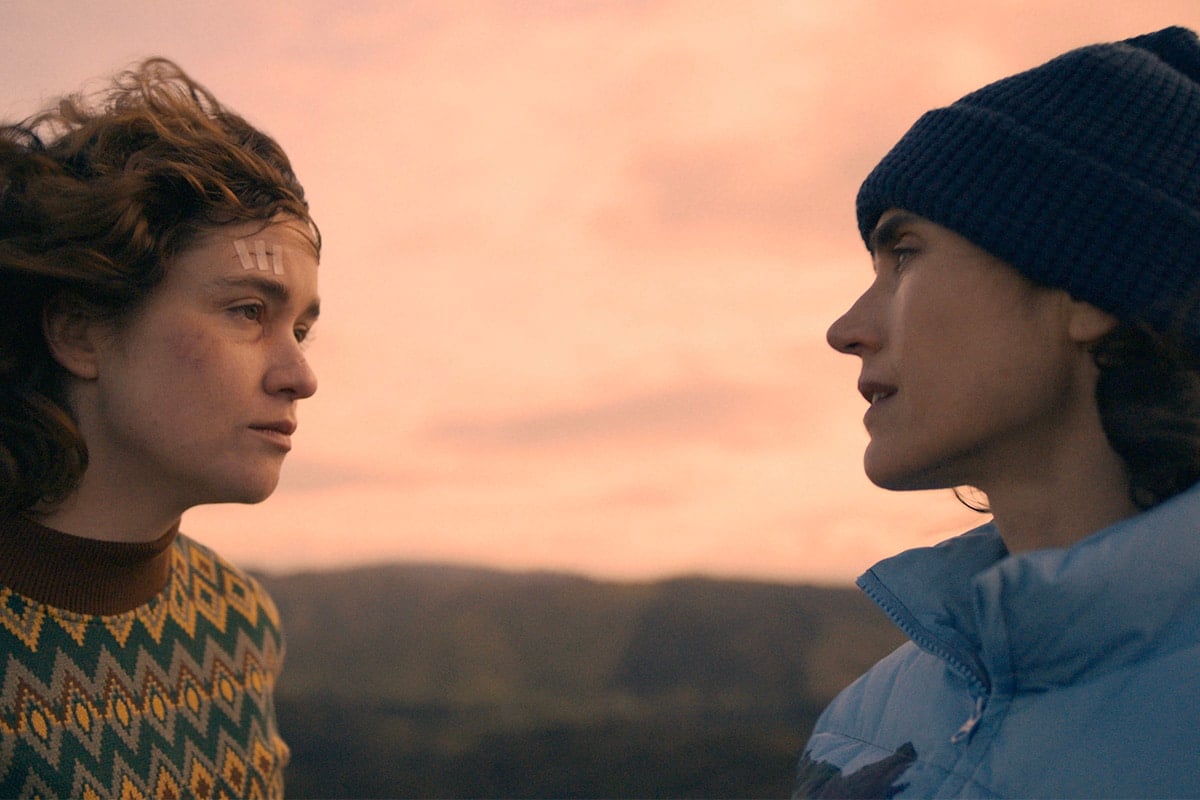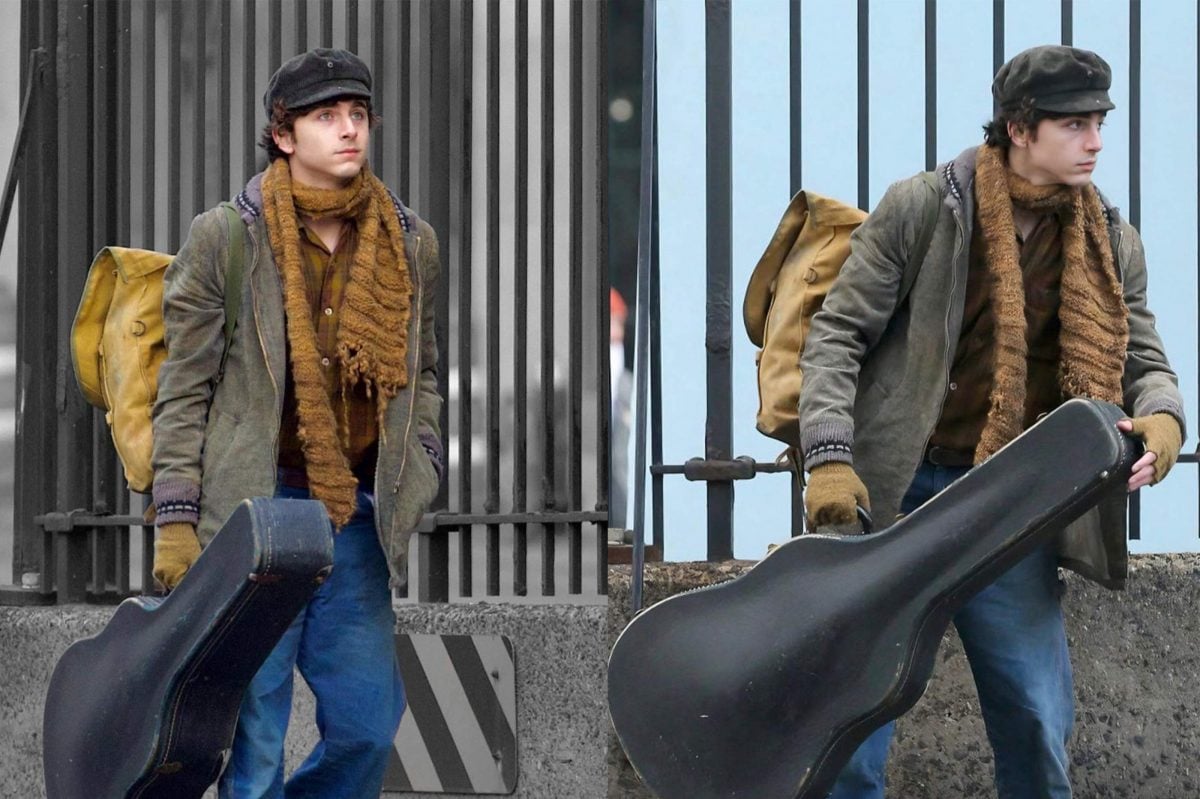
There’s a scene in her directorial debut, Bad Behaviour, that Alice Englert keeps referring to as “the accident”. But it's not an accident, Englert laughs through a pixelated square on Zoom, it was completely intentional. Midway through the film, Jennifer Connelly's character Lucy ruptures the serene atmosphere of a wellness retreat with a burst of violence that is both chaotic and cathartic, especially to the audience.
"When I wrote it, I could feel it as a rip on reality. Leading up to the shooting the scene, I was so concerned with asking the cast to do it, and I began questioning whether it would even work," Englert explains. "But it was, like, the easiest of the scenes to shoot. The way human beings rise to drama is unbelievable."
Englert could have easily called it curtains here. But real life is never this neat. It continues, even after the unspeakable has occurred, and the second half of the film makes space to explore what Englert calls the "fecund soil" of shame, guilt and accountability.
As her first film in the director's seat, Englert has established a tone for the kind of narratives she hopes to tell in Bad Behaviour. Stories of imperfect women who don't pander to a male gaze, whatever form that may take. As the daughter of Jane Campion, do we expect any less?
Below RUSSH spoke to the actor, writer, and now, director who shared how Caravaggio’s Medusa inspired the film, and why she self-identifies as a "submerging artist".
What drew you to create this film which, at its heart, is about imperfect women?
Because I’ve sometimes felt as though I’m trying to put my hand in a four-fingered glove, it made me realise that growing up, women felt foreign in a lot of films. I love hyper-femininity, it’s also something that I feel I appreciate more than I possess. I guess I’m being polite – there’s also a history of reductive female characters in film, and I’ve been spoiled to grow up in an atmosphere where that has been the opposite. But the old way does come for you if you’re in this industry, no matter where you come from. And by the old way, I mean this feeling that I must be missing something about what it is to be a woman, that it’s something you have to learn. I think I just want more films that don't care if the women look good, and I think there are so many people making those films now – and who have been writing and making those stories all along. Now they're just exploding in a way that I love.
Is that your intention with making films, or at least one of them?
I think equality needs unlikable women. I don’t want to see propaganda of what a woman should be. I don't want to just tell the men’s stories, but with the women inserted into them. I want our stories. When I was at Sundance I saw Mami Wata and Passages, and I was floored by how good they were. There's no world in which I could have made them, and there's no world in which I would have ever been right to make them.
I’ve seen people try and draw comparisons between the mother and daughter in the film and your own relationship to your mother. What actually drew you to that dynamic?
Lucy was the first character I came up with, and she was inspired by Caravaggio’s Medusa painting. There’s a moment in the film when Jennifer pulls that exact face too. I was so scared of that painting, I was compelled and afraid of it. Medusa is a great myth to look up: she was assaulted in Athena's temple and then they punished her for it. So there’s something in the way that painting spoke of how a misunderstood woman can become a monster.
I really wanted to tell the story of someone who behaves in a truly villainous way in our normal lives, but who doesn't conveniently die straightaway after. The film doesn't conveniently end. I wanted the high moment to dissipate and for the weird reality to have to try and seep in.
I also think that if there’s no stories about moving on, then everyone just tries to make their story more acceptable. At some point we will all play the full spectrum of characters, which includes the villain. Shame and guilt and accountability can actually be fecund soil to grow from.
The casting is pitch perfect. Did you know from the beginning who you wanted involved?
For Lucy, I knew I wanted a dark-haired woman. Maybe it’s my interest in what happens to Snow White when she grows up: does she become a cunty stepmother too? I didn’t even know Jennifer was an option, but I wrote to her and told her she was like the blue part of the flame, because it’s true. She’s got this great paradox in her: she can be cold and hot all at once.
As for Ben Whishaw, he’s such a charismatic person that I knew he could help this uncharismatic guy. A lot of the enigmatic spiritual leader thing is so projected and he also just has this gentle touch and way of being with people that I knew would become the steady core of the film.
I had worked with Dasha Nekrasova previously, and I just remember thinking that she seemed sort of like a cat on a wall just looking down and observing. I love Beverly, I love a popular girl. I’m so scared of them, and I really want them to like me but they never do. They can smell the desperation. But I wanted to show the loneliness of her situation too; because everybody wants to be you and wants something from you and sort of hates you at the same time.
You’ve called yourself a “submerging artist” before. Do you find it easier to work away from the chatter and the spotlight?
I just can’t work if I’m thinking too much about what others will think. The internet can actually be worse than anything you tell yourself, even if you are also not very nice to yourself. Also, a lot of the advice you get from the industry is to ‘ride the wave’. You’ll find there's a lot of people who might be very genuine and clear and kind, and sometimes even what they have to say isn't right for you, you know? The thing you have to remember, apart from trying to be successful at what you do so you can keep doing it, is you also probably started with the intention of doing things your own way.
In her book, All the Women in My Brain, Betty Gilpin writes about how there is some part of you that did think you were original, when you were a kid or whatever, and it’s important to not just let that die. You do need perspective, and you will have to make compromises, but you do need to let that whisper have its space.
See Bad Behaviour in Australian cinemas from November 9.



